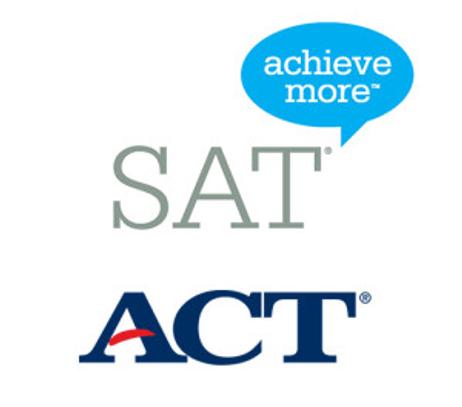Should you send your child to a school which prepares its students to take either the SAT or ACT? That's a decision which you will face when you evaluate schools on your shortlist. At that point, you will have to choose schools which teach to the test or progressive schools which do not.
Schools which offer SAT or ACT preparation spend two or three years preparing their students to take those examinations in their senior year. In addition, most of these schools will offer Advanced Placement (AP) courses. Progressive schools prepare their students for college with experiential learning and the development of portfolios demonstrating academic accomplishments. Naturally, each educational approach has its proponents and its opponents.
Some people think that good test scores on standardized admissions tests are the only way to get into a competitive college such as Harvard or Princeton. The reality is that these days, college admissions departments look at much more than test scores when determining which applicants to admit.
Background: History of the SAT and ACT
The SAT, or Scholastic Aptitude Test as it used to be called, has been around since 1926. A Brief History of the SAT explains how the SAT evolved from an Army IQ test to a college admissions test. The original idea behind that college admissions test was to level the admissions playing field by evaluating scholarship students seeking admission to Harvard. Back in the early part of the 20th-century, the elite New England boarding schools provisioned Harvard with their graduates. The SAT was seen as a way to admit deserving students who had not attended boarding school. Over the years, the SAT has become the most widely-used assessment of college preparedness both here in the U.S. and abroad.
The purpose of the SAT in the 21st-century
Chris Streetman describes the purpose of SAT and ACT exams succinctly. "Colleges often use the ACT or the SAT to determine whether to admit the student or to determine how much scholarship money they will award the student. Colleges on the east and west coasts use the SAT. Other colleges use the ACT. The Oxford Dictionary defines the SAT as “a Scholastic Aptitude Test, a test of a student’s verbal and mathematical skills, used for admission to American colleges” (Oxford Dictionaries). The ACT tests, as defined by “Data on Student Preparation, College Readiness, and Achievement in College,” “seek to predict how current students will perform in courses commonly taken by new college students” (24). Both tests are considered by most colleges a valid assessment. However, other sources beg to differ. These dissenting sources would most likely support the view that standardized tests, such as the ACT and SAT, should be abolished because they lack reliability, perfectly consistent administration, and content validity. "
This video from PBS explains what the SAT measures.
ACT
In The History Of The ACT Test, Samantha Lindsay points out that the American College Test was designed to test what students had actually learned in high school. What set it apart initially from its rival the SAT was that it tested a student's academic strengths and weaknesses as opposed to testing only cognitive reasoning. From its founding in 1959 it developed a strong following in the central and midwestern states.
This video explains the ACT test.
Preparation for the tests
Technically, schools prepare their seniors to take the SAT and ACT exams in the fall. Most college application deadlines occur at the end of January, so taking the SAT or ACT tests in November or December is critical in order to meet the application deadlines. Outside of the classroom, most parents encourage their children to work several practice tests well in advance of the actual test date. There are many free or inexpensive resources available online to provide the extra practice students need in order to be confident on the day of the test. Some parents will hire tutors to prepare their children for the SAT and ACT tests.
While each testing service charges a fee to take their exams, they do offer waivers to applicants who cannot afford the fees. The testing services also make accommodation for students with disabilities. See each organization's website for details on the fee waivers and the accommodations available for disabled students.
Scandals on test-taking and cheating
Because the SAT and ACT test scores are such an important part of an applicant's admissions profile, attempts to game the system and cheating occur with great regularity. It's a sad indictment of our entitled society that some members will stop at nothing to get what they want. So it is with standardized college admissions tests. Modern technology has made it much easier for people to cheat in hundreds of different ways. As this article in The Washington Post reports, the boldness of the perpetrators is astonishing. In How to Cheat on the SAT: 5 Ways People Have Brooke Hanson recounts five ways people have cheated on the SAT. Fortunately, the College Board and Educational Testing Service staff are ever on the alert for cheating.
The future of standardized college admissions tests
In 2018 Johns Hopkins University released Measuring Success: Testing, Grades and the Future of College Admissions
While there is a lot to unpack in that book, the main point is that data is important in determining whether a student is capable of doing college-level work. Transcripts, test scores, portfolios, and teacher recommendations provide a snapshot of an applicant. The application essay and an interview with the admissions staff add depth and dimension to that academic data.
This video offers tips on how to ace your standardized test.
Finally, preparation for admissions testing and all the other aspects of completing a college admissions application is a gradual process spanning many years. If you decide that your child will follow the educational path with testing at every step of the way, then take time to ease her into taking tests successfully. It is also worth considering that she will encounter standardized tests many times in her adult life. GMAT, LSAT, PRAXIS, TOEFL, and MCAT are just a few of the common standardized tests which candidates for advanced school or professional certification must take.
Questions? Contact us on Facebook. @privateschoolreview























